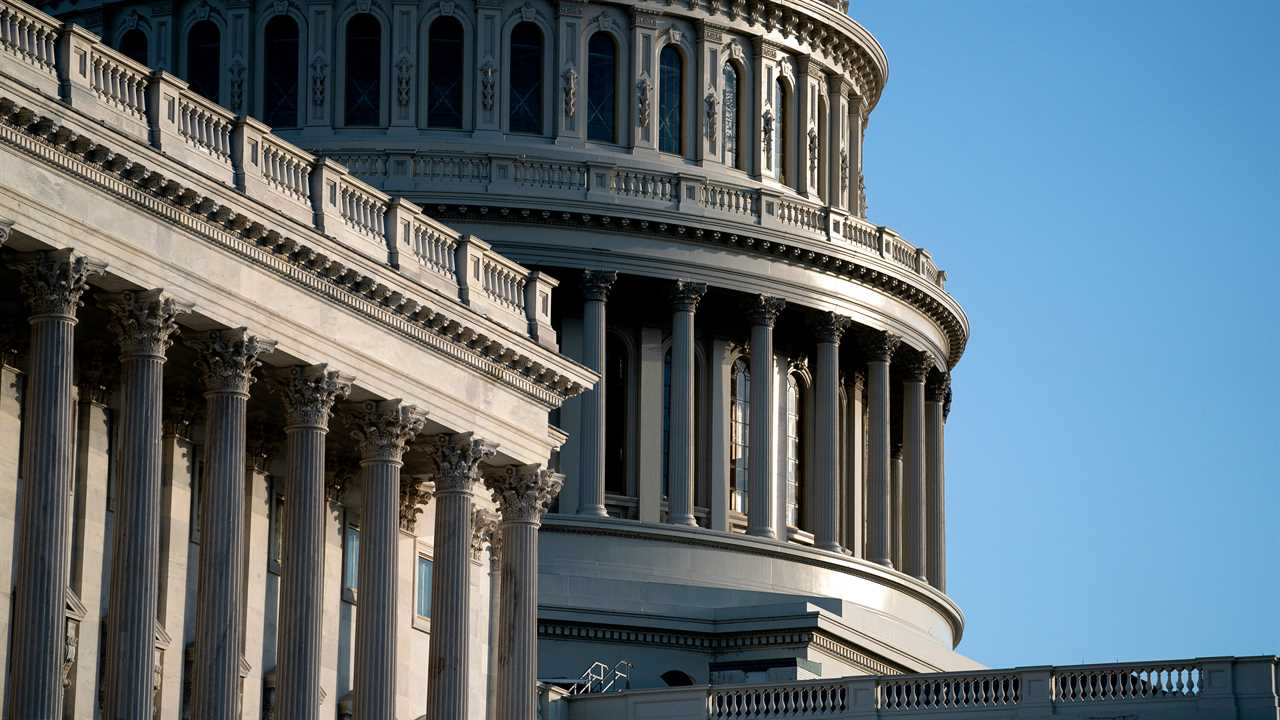
Congress will reconvene on Monday for a make-or-break week in the effort to deliver badly needed relief to Americans and an economy hit hard by the coronavirus pandemic before the Christmas holidays.
After months of impasse, lawmakers are now staring down a Friday deadline to complete a must-pass government funding bill to which they hope to attach new money for small businesses, unemployed Americans, the airline and restaurant industries, and schools. Many of the relief programs created this year are set to expire next week, putting millions of Americans at risk of losing government support as the health crisis continues in their communities.
A bipartisan group of lawmakers who have been working for a month on a $908 billion proposal met through the weekend and plan to introduce their final product on Monday, with Senator Joe Manchin III, Democrat of West Virginia, declaring “we’ve broken the gridlock” in a phone interview on Sunday.
Mr. Manchin said the bill would be offered in what he called “two tranches,” with one part featuring compromises on the two most polarizing provisions — $160 billion to bolster state and local governments and a temporary liability shield to protect businesses, nonprofits, schools and hospitals from lawsuits related to the pandemic.
The second package would include the remaining $748 billion allotted for more widely supported proposals to fund vaccine distribution, schools, unemployment insurance benefits, small businesses and other institutions struggling to stay afloat because of the pandemic.
The decision to present the $908 billion framework in two parts, which was first reported by Politico, reflects in part a push from Senator Mitch McConnell, Republican of Kentucky and the majority leader, to approve a narrow measure that excludes both any liability provision and state and local funding. Democrats have been resistant to a liability shield they say could harm worker protections and Republicans have been reluctant to support what they have derided as a “blue state bailout” for state and local governments.
Democrats shot down that idea when Mr. McConnell first floated it last week, but there were signs on Sunday that they may be reconsidering. Representative Steny H. Hoyer, Democrat of Maryland and the House majority leader, signaled that Democrats, who have already shaved more than $2 trillion off their own demands, may be willing to set the state and local funding issue aside until after President-elect Joseph R. Biden Jr. takes office.
But Speaker Nancy Pelosi, Democrat of California, who spoke for about 30 minutes with Steven Mnuchin, the Treasury Secretary, on Sunday, seemed prepared to fight to keep that money in an agreement.
“The Speaker believes, at a time when the virus is surging, that the need for state and local funding is even more important, especially given the states’ responsibility for distributing and administering the vaccine,” said Drew Hammill, a spokesman for Ms. Pelosi, in a statement summarizing the conversation.
During the phone call, Ms. Pelosi suggested to Mr. Mnuchin that she was open to a compromise on the liability shield issue, provided that it “does not jeopardize workers’ safety,” Mr. Hammill said.
Mr. Manchin acknowledged that leadership would ultimately make the final decision as to what elements of pandemic relief would be wrapped into an omnibus government funding package.
“They have the final say,” he said. “We’re just showing them that a bipartisan group of Democrats and Republicans can produce a piece of legislation that meets the needs of the American people.”
Adding to the complications for a final agreement, leadership will likely have to address a campaign led by Senators Bernie Sanders, the Vermont independent, and Josh Hawley, Republican of Missouri, to include another round of direct payments to Americans.
Top lawmakers are also hoping to add a bipartisan deal on surprise medical billing into the year-end spending package, after two years of struggling to reach agreement on how to end a practice that leads to patients unexpectedly being treated by a doctor who does not take their insurance.
While Democrats have publicly said they hope to see the measure included in the package, top Republicans including Mr. McConnell have yet to sign off, senior Republican aides said. Ms. Pelosi, who is expected to speak with Mr. Mnuchin again on Monday, raised the matter with the Treasury secretary during their phone call.
Did you miss our previous article...
https://trendinginthenews.com/usa-politics/in-rejecting-texas-lawsuit-supreme-court-delivers-a-rebuke-to-gop






